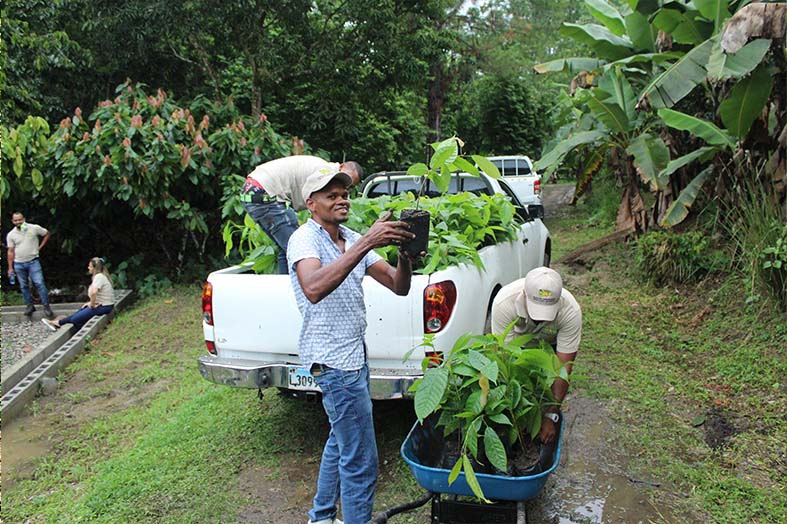How is PRONATEC implementing the EUDR?
PRONATEC has always made every effort not to obtain any raw materials for the food industry that cause deforestation, either directly or indirectly. We take targeted measures to increase vegetation, for example by converting pastureland into agroforestry systems. With the EU Regulation on deforestation-free supply chains (EUDR), this matter has become even more pressing. Here we explain in specific terms the processes and obligations involved in importing cocoa.
What does the EU Deforestation Regulation require in relation to cocoa?
The EU regulation on deforestation-free supply chains (Regulation (EU) 2023/1115) requires that cocoa imported into the EU should be deforestation-free (no deforestation after 31 December 2020), that its production should accord with the legislation of the producer country and that it should be accompanied by a due diligence statement. The provisions of the EUDR will apply to large and medium-sized companies from 30 December 2025. From 30 June 2026, they will also apply to small and micro-enterprises.
How is the data entered in the EUDR due diligence statement?
Importers into the EU are required to produce a due diligence statement for cocoa and cocoa products. PRONATEC works with a verification platform. We upload the data from all our suppliers (cocoa smallholders) to it. The platform checks and sorts the data and approves it if there is no risk of deforestation. The following information is included for each cocoa smallholder:
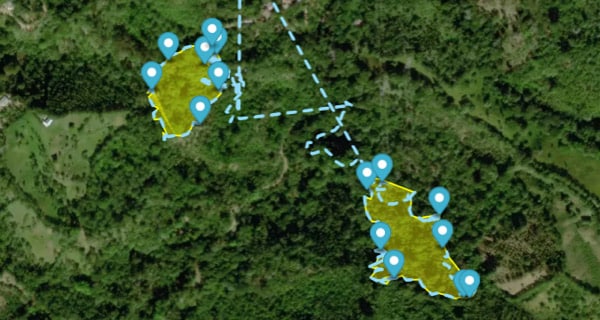
What do customers in the EU need to do?
If you are based in the EU, PRONATEC is regarded as the importer into the EU. That means we take responsibility for issuing the due diligence statement. Our platform automatically reports the import to the EU’s Trade Control and Export System (TRACES). There, the data is checked. Our platform automatically generates a due diligence statement for each import batch. This contains the data for all the smallholders whose beans were included in the import batch in question.
We will give you a reference number for the due diligence statement which will have been filed for you in TRACES. Useful to know: as a market player further down the supply chain, you do not have to provide your own due diligence statement but simply have to prove that one has been produced. You can pass your reference number on to subsequent customers.
What do customers in Switzerland need to do?
If you are based in Switzerland and buy cocoa products from us and sell them on to your customers in the EU, either processed or unprocessed, you or your customer are regarded as the importer and must issue the due diligence statement. We will make all the information you need available to you digitally in GeoJSON format, based on our ERP system and a verification platform. This is the archiving format for georeferenced data that is prescribed by the EU.
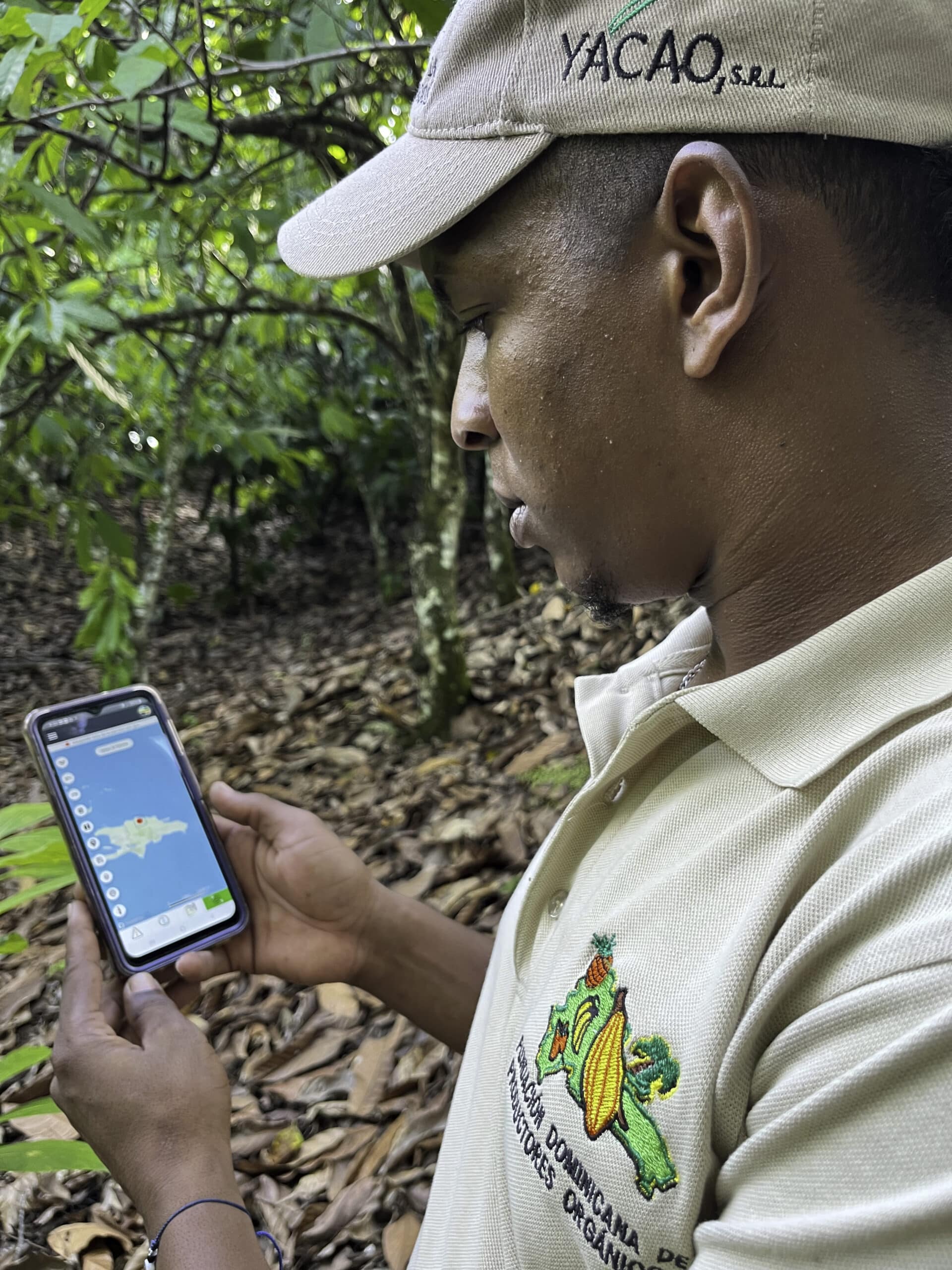
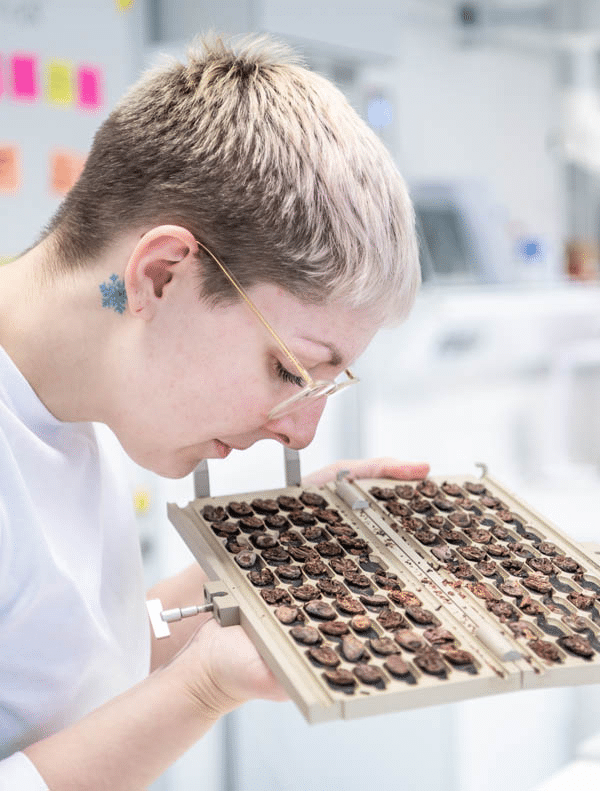
How many due diligence statements are required
A separate due diligence statement is required for each import and each batch. A dedicated reference number is created on TRACES (by PRONATEC or, in the case of our Swiss customers, by the importer into the EU). Each reference number can be shared with market players further along the supply chain.
A batch normally contains cocoa from several smallholders, so the data from all the relevant smallholders is included for each batch.
A sound basis for your cocoa imports into the EU
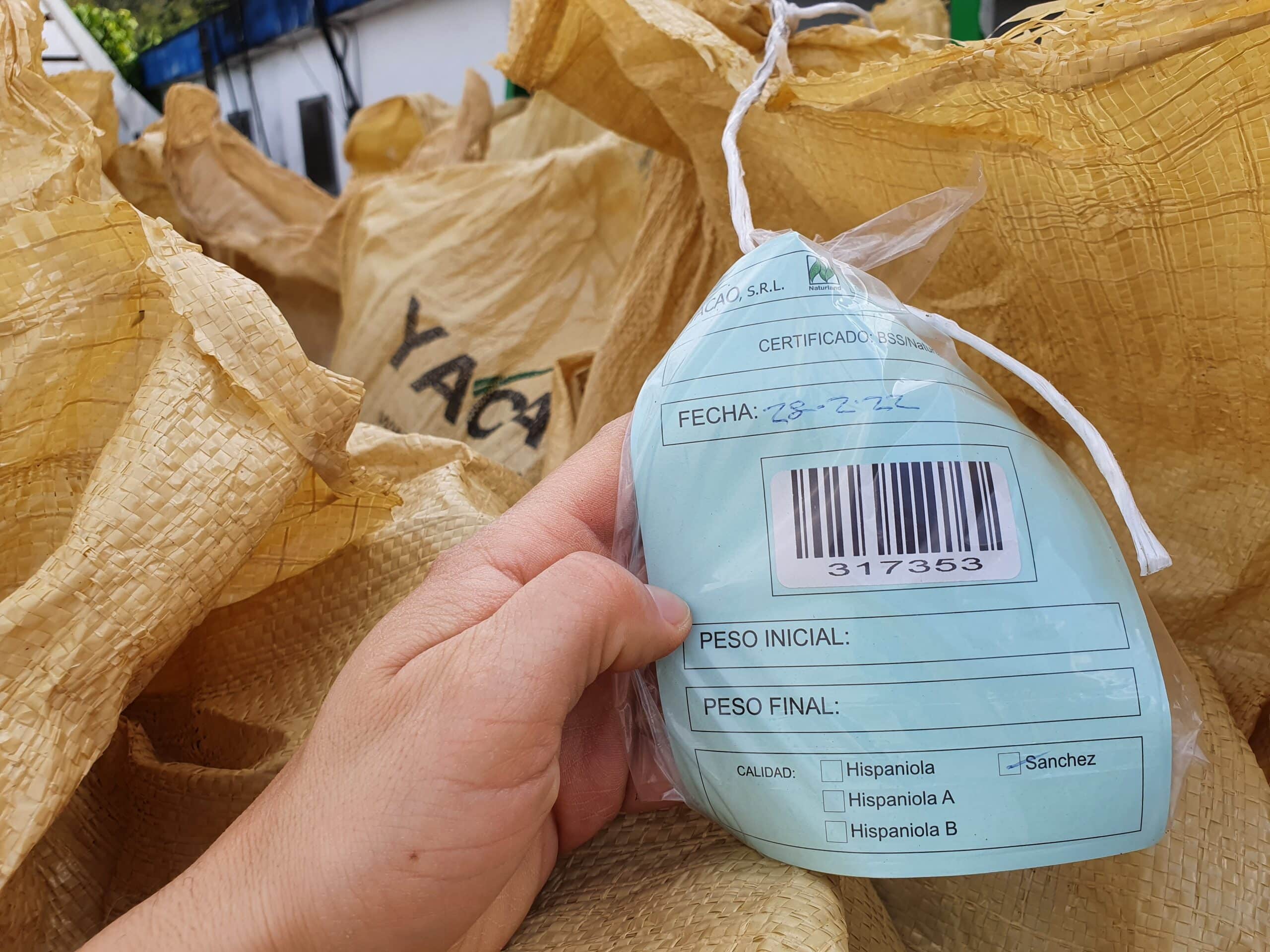
Our strict certifications in the countries of origin help us to meet many of the requirements of Regulation (EU) 2023/1115. For example, thanks to our organic certification, full traceability back to the producer is already available for all certified cocoa beans we import.
PRONATEC’s primary goal is to eliminate any risk before the cocoa beans are exported from the countries of origin. To this end, all partners in the countries of origin go through an annual authorisation process which takes the current production areas into account. Deforestation in cocoa applies primarily to the main cocoa-growing countries in West Africa, where forests are cut down to grow cocoa.
PRONATEC sources cocoa chiefly from small farmers’ organisations in Latin America, where cocoa is grown in traditional agroforestry systems. These forest-like systems harbour a rich biodiversity. Fallow land or former pastureland is often turned over to agroforestry. This all means that the risk of deforestation is minimal compared to conventional supply chains. Another important factor is the close partnership with our long-standing suppliers, also known as “PRONATEC Direct Sourcing”. This refers to the principle of sourcing raw materials directly from the producer organisations wherever possible, without intermediaries.
Our action plan for deforestation risk management
Thanks to our close relationship with our partners in the countries of origin, we are working together with them to meet the requirements of Regulation (EU) 2023/1115. To eliminate any risk before exporting from the countries of origin, we are taking the following measures:
- Promotion of agroforestry cultivation with training programmes, seedlings of local cocoa varieties and other crops
- Reforestation of already degraded areas
- Raising awareness among local partners for the issue
- Georeferencing cultivated plots: This involves using the abunda+ ICS software to measure and precisely record each individual cultivation area.
- Analysis of the cultivation areas surveyed: The geodata of each area are linked to the Global Forest Watch Pro tool and provide an accurate picture of possible deforestation (anti-deforestation mapping). In the event of irregularities, the areas are visited and checked on site. Non-compliant areas are systematically excluded from the supply chain for Europe.
- Risk analysis of all production areas and origins
- Verification and on-site measures for any risks identified
- Compliance with local legislation and associated monitoring
- Provision of data in the required form
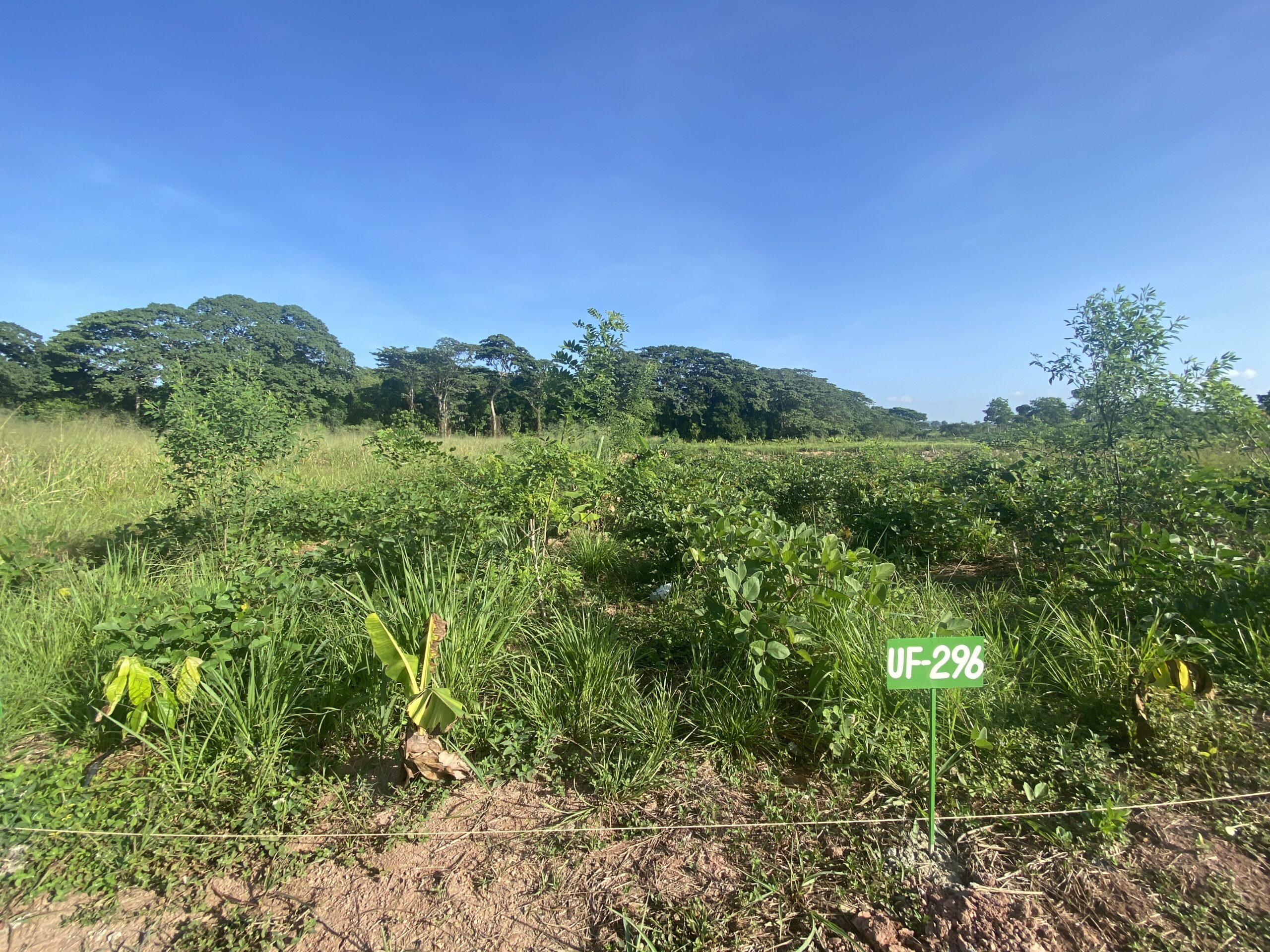
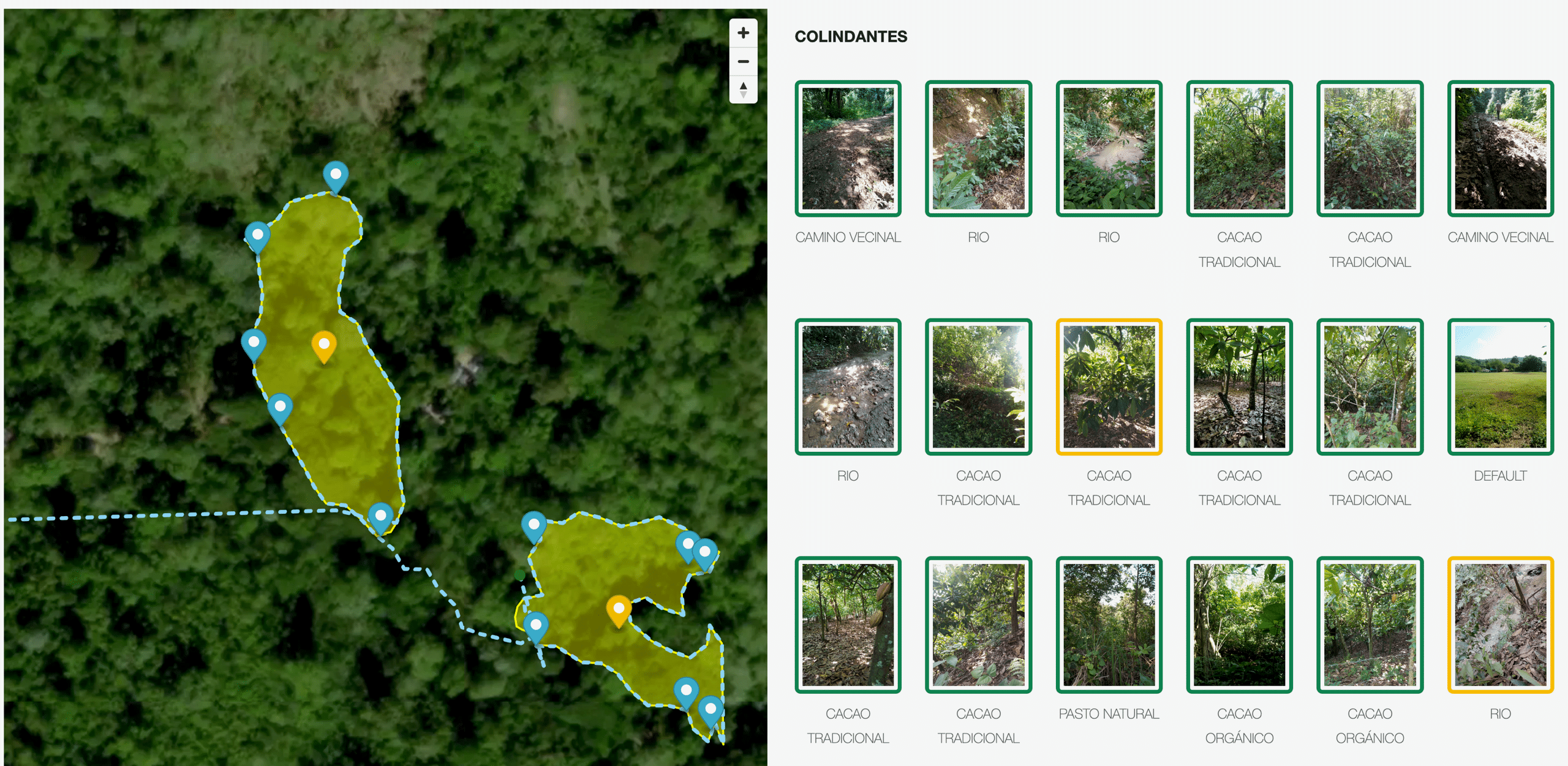



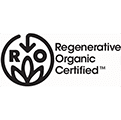
Advantages of our organic and fair trade certified cocoa products
Thanks to certifications such as Fairtrade, Naturland, Bio Suisse and Regenerative Organic Certified® (ROC), issued by independent, accredited inspection bodies, we can provide an additional guarantee that no deforestation occurs at the point of origin. The relevant criteria on which the certification is based are regularly checked. See also:
- Fairtrade Standard for Small-scale Producer Organizations, chapter 3.2.31, 3.2.32 and Fairtrade Standard for Cocoa, chapter 3.4
- Naturland Standards Part B.; I. Crop production; chapter 7
- Bio Suisse STANDARD, chapter 3.1.5.3, 3.5
- Regenerative Organic Certified® Framework: chapter 1.4
We should point out that minimisation of the deforestation risk applies only to products that have been certified by independent inspection bodies in accordance with the above-mentioned labels. We therefore recommend that customers purchase only certified products.
Obtaining and checking the data is very time-consuming. Added to this are the costs of verification by independent certification bodies. This time and expense is reflected in the price. The purchase of certified products supports the production of high-quality products and makes a valuable contribution to combating deforestation.
The members of FUNDOPO own on average 5.15 hectares of cultivated land each. They receive additional valuable support through the organic and fair trade premiums. These finance the following:
